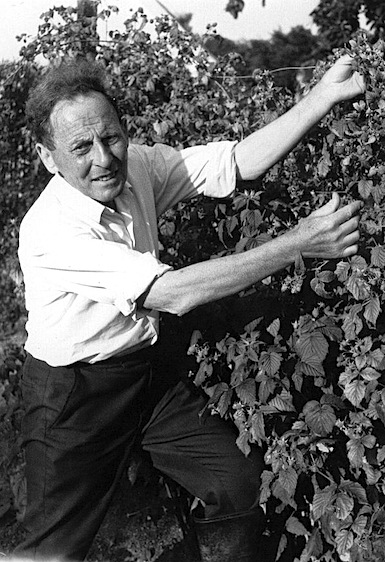From vegnews.com
Trump recently announced he would try vegan food for the first time. But his pronunciation of the word was more “vay-gan” than “vee-guhn.” Here’s the right way to pronounce vegan, plus the word’s interesting history
It’s no secret that Donald Trump is a big fan of meat. According to Culture Trip, he often eats bacon and eggs for breakfast (or a McDonald’s McMuffin), meatloaf for lunch, and fast food for dinner (which, often, is more McDonald’s) or steak. So it’s unsurprising to hear that he doesn’t eat vegan food. But that might be about to change, as he recently announced that he would try it for the first time on stage at a rally in Waukesha, WI. Well, he announced he would try “vay-gan” food for the first time, at least.
“It’s supposed to be really good. I’m not into this vay-gan stuff, I must say, but I’m gonna have to try this,” Trump said after introducing Shana Gray, the owner of Milwaukee vegan restaurant Gray Jett Cafe. “When we come here in a short period of time, into Milwaukee, we’re gonna come and try that vay-gan food. I don’t know if I’m going to like it.”
According to Urban Milwaukee, while Trump claimed that Gray’s “vay-gan” business performed better financially under his administration, Gray Jett Cafe opened more than two years after Trump left office. “Things have to change. I’m not sure who the best candidate is to do that,” Gray, who voted for President Joe Biden in 2020, told Fox News in April. However, CBS News reports that while presidents are often blamed for issues with the economy, “performance is often tied to boom-and-bust cycles that don’t have much to do with who’s occupying the White House.”
Politics and economics aside, however, we’re here to settle another debate, and that’s the pronunciation of “vegan.” Spoiler: don’t listen to Trump on this one.
How do you pronounce ‘vegan?’
The word vegan is derived from the word vegetarian, so, with that in mind, it’s understandable that some pronounce it “veh-gan” or “vay-gan.” However, while the pronunciation can vary slightly depending on regional accents, generally, it is pronounced with two syllables: “VEE-guhn.” The first syllable “VEE” is stressed, meaning it’s emphasized more than the second syllable, and the second syllable “guhn” is less emphasized.
Who invented the term vegan?
While plant-based lifestyles have been around for centuries, across Asia, Africa, and Europe, for example, the word vegan wasn’t invented until 1944. Back then, there was a word for vegetarian, but not a word for people who didn’t eat dairy or eggs either, other than “non-dairy vegetarian.” That is until an animal-rights activist named Donald Watson decided to invent a new word: vegan. According to Watson, who also co-founded The Vegan Society, the word marked “the beginning and the end of vegetarian.”
Vegan wasn’t the first word that was suggested. Watson, together with five other non-dairy vegetarians, including fellow The Vegan Society co-founder Elise Shrigley, also came up with words like “benevore” and “dairyban,” before they settled on vegan. “The word was coined by Donald Watson from a suggestion by early members Mr George A. Henderson and his wife Fay K. Henderson that the society should be called Allvega and the magazine Allvegan,” explains the present-day Vegan Society.
 Donald Watson | The Vegan Society
Donald Watson | The Vegan Society
Five years later, a definition of veganism was officially introduced for the first time to clarify that vegans object to the “use of animals by man for food, commodities, work, hunting, vivisection, and by all other uses involving exploitation of animal life by man.” Over the years, the phrasing of the definition has been altered and refined.
The official definition now states that veganism is “a philosophy and way of living which seeks to exclude—as far as is possible and practicable—all forms of exploitation of, and cruelty to, animals for food, clothing or any other purpose; and by extension, promotes the development and use of animal-free alternatives for the benefit of humans, animals, and the environment. In dietary terms, it denotes the practice of dispensing with all products derived wholly or partly from animals.”
Now, the word vegan is used frequently around the world to describe people who don’t consume, use, or buy animal products, as well as products or foods that don’t contain animal-derived ingredients. It is often used interchangeably with the term “plant-based,” but it’s important to note that the latter is often used to describe simply dietary choices rather than lifestyle ones.
https://vegnews.com/vegan-health-wellness/how-to-pronounce-vegan
No comments:
Post a Comment